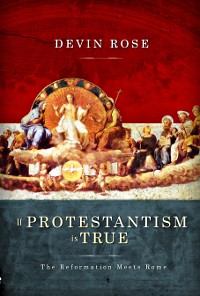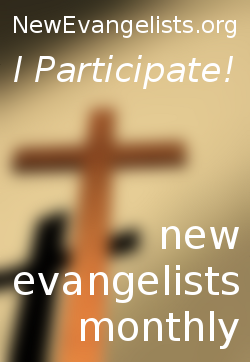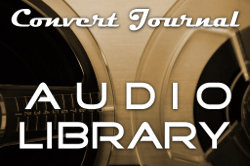
Devin Rose is a smart, thoughtful Evangelical convert and Catholic apologist. His book, If Protestantism is True is not his conversion story. It is a rather unique exploration of Protestant claims and beliefs.
Instead of saying Protestantism is in error and why the truth is in the Catholic Church… author Rose simply takes Protestant claims at face value, methodically explores them and draws the conclusions which logically flow were they true. Many topics are covered and at the end of each, the conclusion is presented beginning with “If Protestantism is true, …”
For example, on “Heresy and Schism in History” Rose gives 4 pages of the background leading up to the Reformation and concludes:
If Protestantism is true, then throughout all of the history of the Church until the Reformation, a heresy was a heresy and a schism was a schism, but the schisms caused by the Reformers were instead new branches on a tree, in spite of the fact that they caused divisions from the Church like every other schism in history had done. Martin Luther was well-intentioned and saw true abuses and evil practices by some leaders in the Church, but unlike the great saints before and after him, he decided to disobey the Church and abandoned any attempt to reform her from within. Had he made different choices, we would likely be calling him St. Martin Luther the Reformer — in the true sense of the word.
In another section, he looks at the disintegration of mainline Protestantism concluding:
If Protestantism is true, then no one Church has the fullness of the truth, but all churches teach a mixture of true and false doctrine. So it makes sense to find one that agrees on enough of the truth that you deem essential and also that appeals to your tastes and preferences. In addition, as your tastes change and your church feels less relevant, it’s your right to find a different church that meets your needs.
As a final example, at the end of the section on the sacraments:
Most practically, if Protestantism is true, then Protestants have some mighty decisions to make — all on their own, as there is no other true authority than their own interpretation of the Bible. They must decide which Protestant (Luther or Calvin) was right about baptism, which Protestant (Luther or Zwingli) was right about the Eucharist, which Protestants (the liberals or the conservatives) are right about marriage, which of their many and varied teachings on confession and forgiveness are valid, etc. I don’t envy the Protestants this task.
Each of these conclusions (and many more) are reached after a non-emotional, straight forward presentation of facts. Most objective readers will probably not take serious issue with that. Committed Protestants will have a natural aversion to where it must lead!
The book is 178 pages divided into 11 chapters (counting the conclusion), supported with acknowledgments, notes and index. The chapters are:
- A Search for Truth
- Anywhere but the Catholic Church
- A Note About Terminology
- Protestantism Then and Now
- About Indulgences
- The Purpose of This Book
- A Call to Honest Self-Examination
- The Difficulty of Conversion
- The Subtlety of Bias
- Is Truth Accessible to All?
- The Catholic Church in History
- Ecumenical Councils
- The Papacy
- Divine Authority
- The Four Marks of the Church
- Celibacy for the Kingdom
- Beneficial Requirements
- The Saints
- Reformation: Schism or Branches?
- The Reformation
- Heresy and Schism in History
- Mary’s Perpetual Virginity and Her Title of “Mother of God”
- Martin Luther’s Personal Holiness
- The Catholic Perspective on Protestants Today
- A New Reformation Needed?
- A Need for Reformation in Every Century of the Church
- The Canon of Scripture
- The Centrality of the Canon
- A Brief History of the Canon
- Martin Luther’s Rejection of Four New Testament Books
- The Seven Deuterocanonical Books
- Accepting the Canon from an Apostate Church
- The Myth of the Self-Authenticating Canon
- The “Fallible Collection” and “Reasonable Certainty”
- Sola Scriptura‘s Logical Consequences
- The Canon of Shakespeare
- The Reformers’ Legacy: Protestantism Today
- The Protestant Meltdown over Questions of Sexuality
- The Protestant Flip-Flop on Other Moral Issues
- The Disintegration of Mainline Protestantism
- “I Have No Authority But Jesus”
- Protestant Objections to the Catholic Church
- “The Catholic Church Manipulated Historical Texts”
- “No One is Infallible, so the Church Cannot be”
- “The Catholic Church Prevented Vernacular Translations of the Bible”
- “The Catholic Church Puts God in a Box”
- “The Catholic Church Does Not Produce Good Fruit”
- “The Early Church Was Like Protestantism”
- “The Catholic Church Invented Doctrines Late in History”
- The Sacraments
- The Sacraments
- The Unanimous Teaching of Baptismal Regeneration
- Baptism, Sola Fide, and Salvation: Two Different Understandings
- Infant Baptism
- The Protestant Rejection of Marriage as a Sacrament
- Anointing of the Sick
- The Eucharist
- Confession
- Holy Orders and Apostolic Succession
- Tradition
- The Closure of Public Revelation
- Oral Tradition and John’s Third Letter
- Evangelical Protestantism and Tradition
- The Family of God Versus “Me and God”
- The Scriptures
- Are the Scriptures Difficult to Understand?
- Protestantism’s Lack of Interpretative Authority
- The Perspicuity of the Scriptures
- Misinterpreting the Great Commission
- Interpreting the Bible with a Modern, Scientific Mind
- To Find the Truth, Follow the Trail of Authority
- Authority is God’s Intention
- Interpretation vs. Authority
This is a very readable book, easily consumed in sections. I recommend it for anyone interested in understanding the claims of Protestantism. It will be especially helpful for Protestants who are reconsidering their denomination’s direction, folks who are interested in Catholicism and all seekers of truth. Lapsed Catholics now in Protestant communities and other poorly catechized Catholics may also find it useful.
From the conclusion:
Jesus Himself gives us the confidence that in seeking Him we will find Him, Who is the Truth and ultimate Authority: “Ask and it will be given to you; seek and you will find; knock and the door will be opened to you. For everyone who asks, receives; and the one who seeks, finds; and to the one who knocks, the door will be opened” (Matt. 7:7-8). May Christ bless and guide your search to find and worship Him in spirit and in truth (see John 4:23), and may He unite us all as one in the fullness of the truth.
























George, Thank you for taking the time to read the book and I love the wise quotes you chose for this review! Protestantism seems safer, I think to some, because of the anchoring in God’s Word and the assurance of the Holy Spirit when reading God’s Word, versus being passed through the filter of fallen humanity and augmented with tradition. Protestants, as do educated Catholics, recognize the abuses that were present, the injustices that were committed and see what errors have sprung up in church history and thus write off the church as the tree that has born bad fruit of simony, indulgences for sale, and murdering people for “heresies”.
It is hard to escape to the pride that springs up once one has followers and is known as a Reformer. I wish he had become St. Martin Luther too instead of the leader of the schism. The fact that he reorganized the order of the books of the Bible and even wanted to reduce the legitimacy of some of the books should have been a red flag to believers, and in fact it is rarely given voice at all by Protestant preachers and believers.
Many Protestant Believers are living holy lives under its auspices, I think just not troubling with the logical insights in the quotes above.
Part of me wants to post a share of this on Facebook but another part wonders if it would be uncharitable to shove this in the face of the kids on my basketball team that, with the exception of my daughter, are Protestants. It would certainly anger some.
I am practicing my faith as part of a Ukrainian Byzantine Catholic Parish now, as some of the same weaknesses that led other Roman Catholics in my area to Mega-Protestant churches led me to the my new Parish. I could never leave the truth of the Catholic Church, nor the Eucharist, nor the intercession of my Mother Mary! I don’t know how others do. I love the Catholic Church, that Jesus founded on the rock of Peter. My own Parish has two priests that are consecrated to the Sacred Heart of Jesus through the Immaculate Heart of Mary. They are both humble, and scholarly, and devoted to a faithful prayer life inclusive of reading scripture and the writings of Church fathers, saints, and Popes. Their preaching is courageous and long before the bishops united they were very clear about our voting conscience during previous elections. Their homilies are rich in the teaching of the Holy Spirit through Scripture, Sacrament, and the writings of the saints. If we had more like those two in the Roman Rite Catholic Churches near me, I would not have been led to the Parish I am in now.
Excellent comment Colleen!
Any organization composed of fallen, imperfect people will suffer problems. The Church always had, and always will, until the end of its mission when Christ comes again. The difference between the true Church and all other human organizations is that it was founded by Jesus Himself and is protected by the Holy Spirit. It is, in fact, inseparable from Him as the Body of Christ. We are the branches and he is the vine. Fallen though we are, we strive for holiness so that we too may one day partake in the full divinity of God. We are a hopeful, work in progress.
We want to share the Good News with non-Christians. We also pray often for Christian unity, that our separated Christian brothers and sisters may know the fullness of truth and the faith. Jesus intended 1 Church and there is but 1 Church (albeit with many splintered Christian communities knowing different subsets and burdened by error).
I can see how faithful (Bible reading, church attending) Protestants could be offended by pushing a book like this on them. Devin is very respectful and gentle, but when the heart is not open the book (or even the topic) could be misinterpreted as an “attack”.
Aside from that specific demographic, many other Protestants might be surprisingly open to a book like this. I read a lot of convert stories and there is often some change in their life that made an opportunity for the Holy Spirit to enter. That open heart with excellent apologetics books like this can do miracles. I particularly note how many people say that they had no intention of ever becoming Catholic. It would be at the bottom of their list of possibilities. Yet, here they are and are often “on fire” with the full Christian faith. I walked this path myself.
George, thank you for this review, and I am honored that you enjoyed the book!